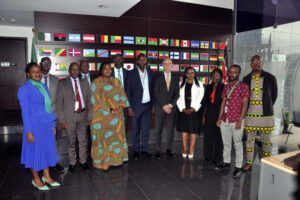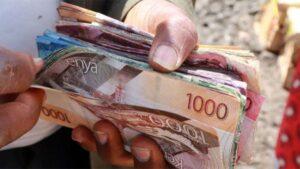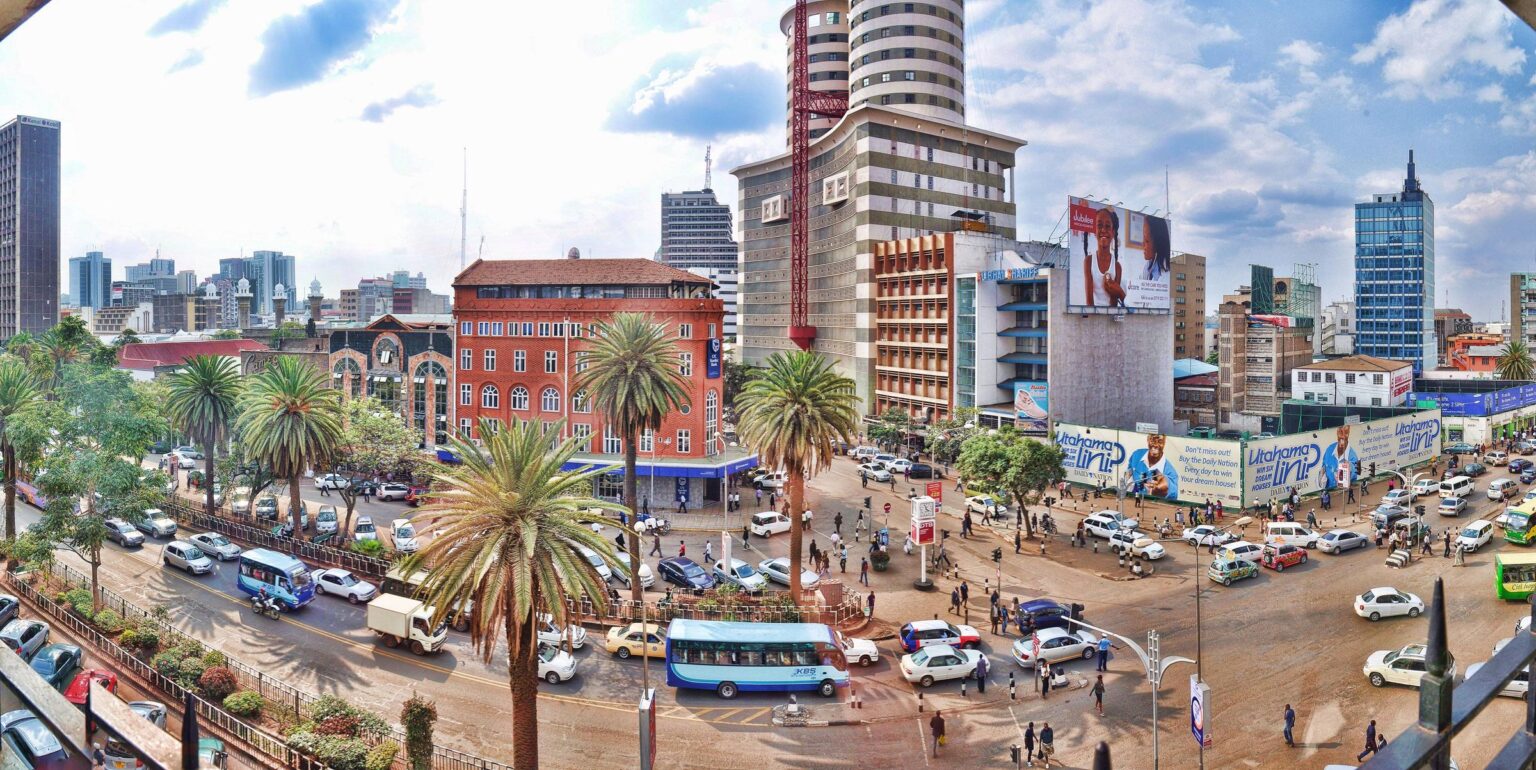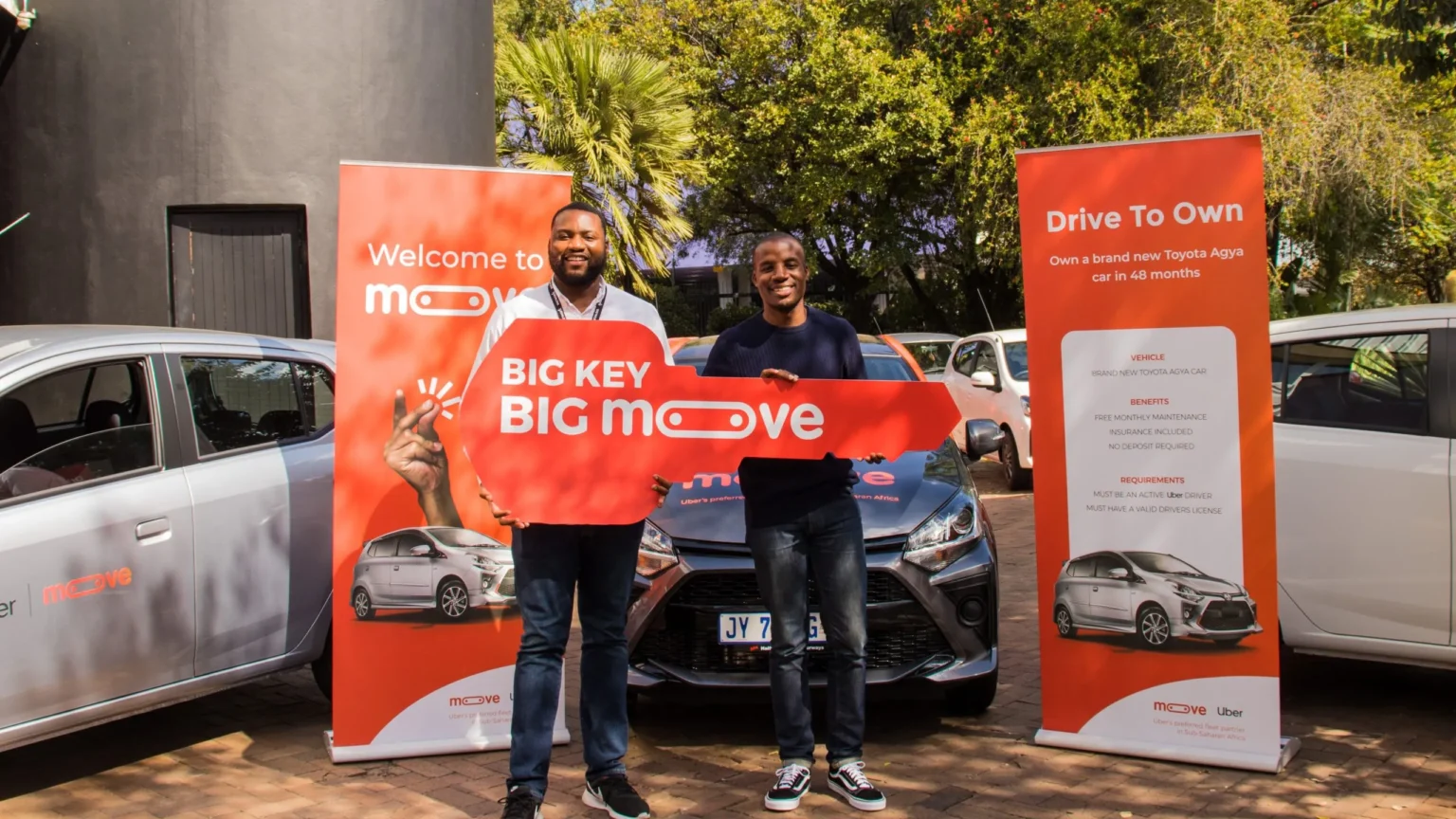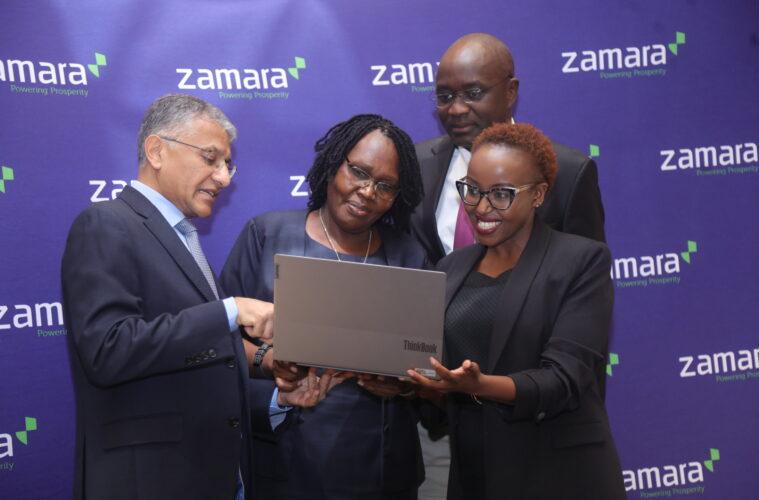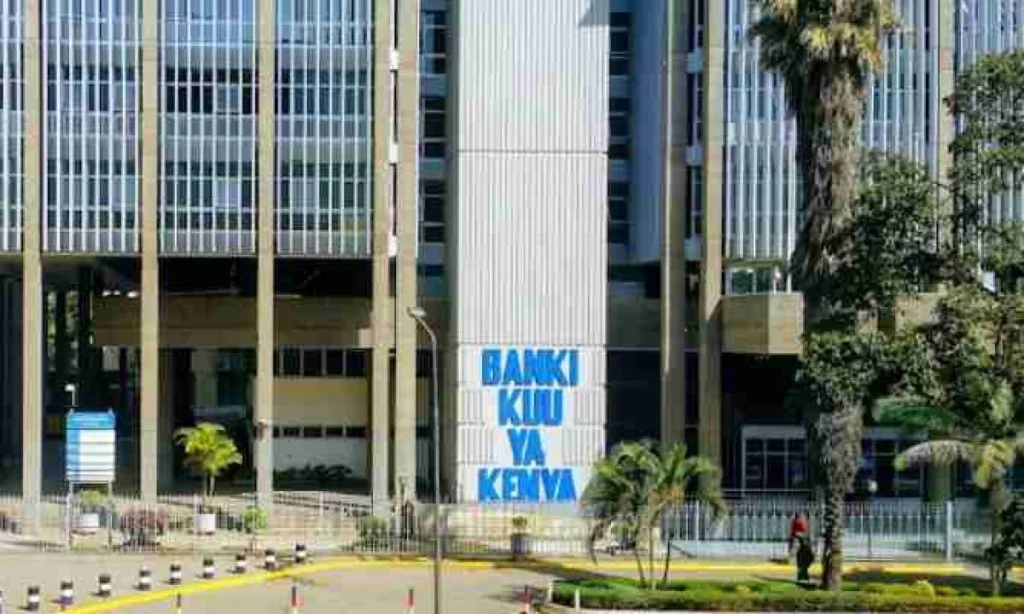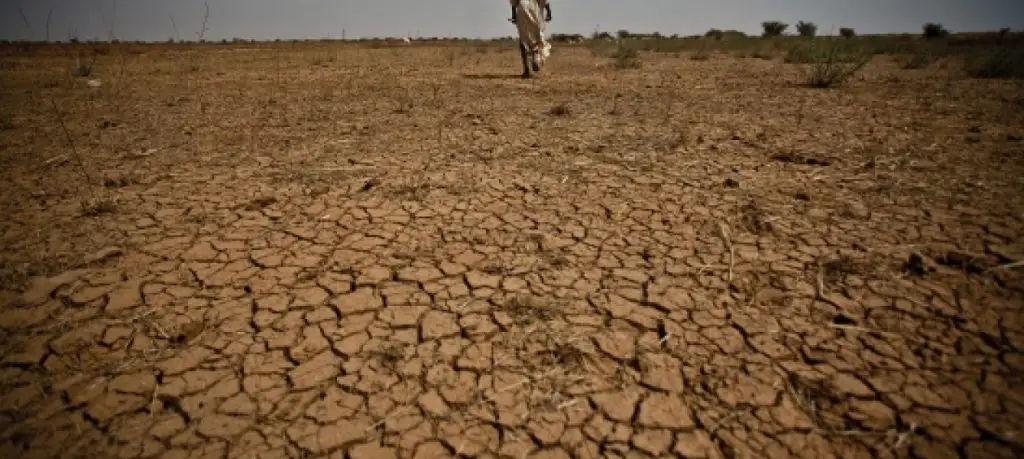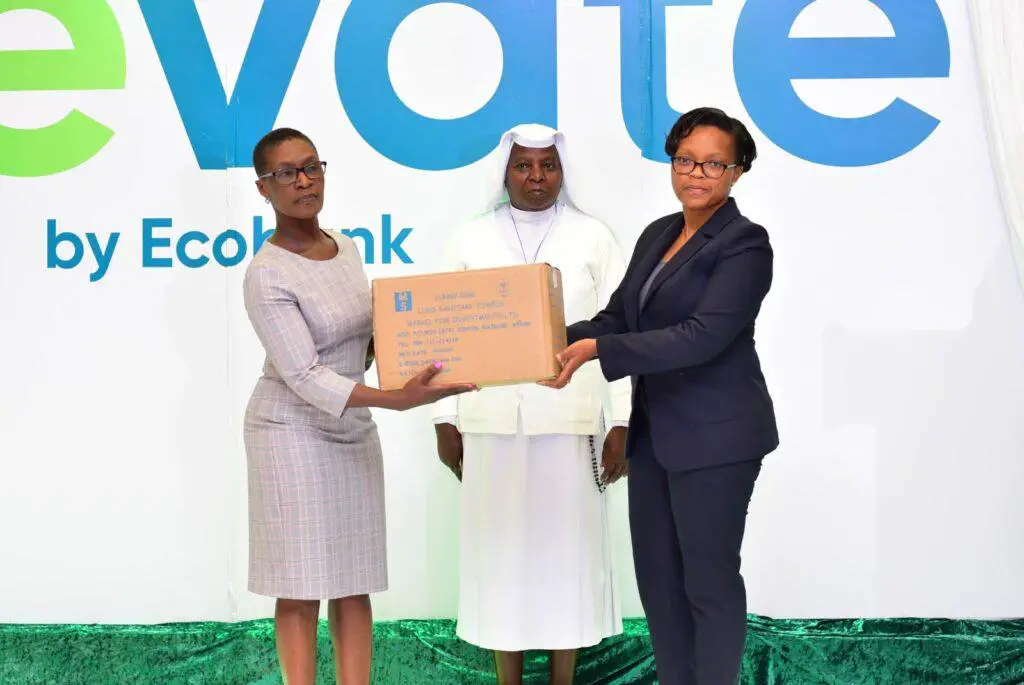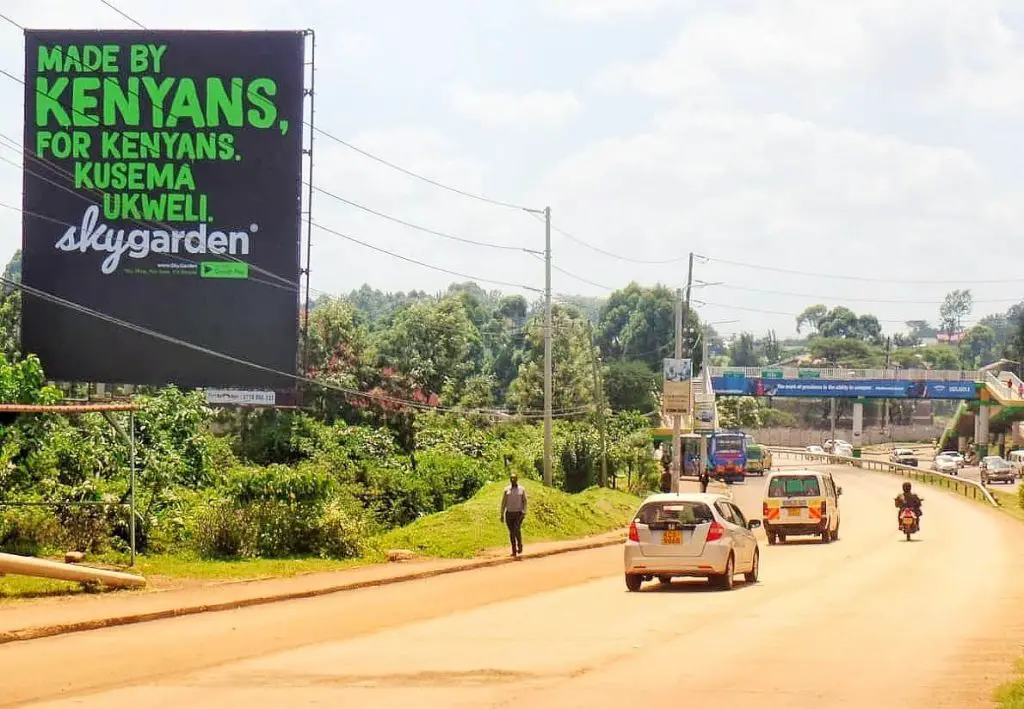- Kenyan Farmers Receive $2M Boost from Africa Fertiliser Financing Mechanism
- Brace for High Interest Rates for a Longer Period World Bank Warns Kenya
- Kenya-Ethiopia Trade Relations: Legislators Advocate for Policy Alignment to Boost Ties
- Visualising the state of debt in Africa 2024
- Abu Dhabi radiates optimism as over 300 startups join AIM Congress 2024
- TLcom Capital Raises $154 million in Funding to Boost Its African Growth
- Africa’s $824Bn debt, resource-backed opaque loans slowing growth — AfDB
- LB Investment brings $1.2 trillion portfolio display to AIM Congress spotlight
Author: Maingi Gichuku
Maingi Gichuku is passionate about helping African businesses grow by offering technology solutions. With a BSC in Zoology and biochemistry, Gichuku yearns for an Africa that can find solutions to its challenges. My drive is to see an economically dynamic Africa and embrace its populations by creating opportunities cutting across the social and economic strata.
- Kenya’s GDP, powered by broad-based growth in services and industry, increased by 6 per cent year-over-year in the first half of 2022
- The agricultural sector’s performed poorer, with a 1.5 per cent contraction in the first half of 2022
- Kenya’s medium-term growth prospects remain favourable, with GDP expected to expand by an average of 5.2 per cent in 2023–2024
Kenya’s gross domestic product (GDP), powered by broad-based growth in services and industry, increased by 6 per cent year-over-year in the first half of 2022.
The post-COVID -19 recovery was hampered by fluctuations in global commodity prices, a protracted drought in the country, and apprehension over the general elections in 2022.
According to the 26th issue of the Kenya Economic Update (KEU), households throughout the nation have been impacted by the drought and rising living expenses.
Due to the agriculture sector’s poor performance, which resulted in a 1.5 per …
- Moove has raised US$30 million to increase its fleet of electric vehicles in the MENA region. The money came from a debut Sukuk offering
- Moove will use the funding to add up to 2,000 EVs in United Arab Emirates over the next year
- Moove predicts that this fleet of EVs will reduce carbon dioxide emissions by nearly 5,000 metric tonnes annually
Moove, a mobility fintech company in Nigeria, has raised US$30 million to increase its fleet of electric vehicles in the MENA region. The money came from a debut sukuk offering that Franklin Templeton Investments (ME) Ltd coordinated.
The successful closing of the company’s first sukuk will give Moove access to the vast pool of Islamic investors who are especially keen on making socially and environmentally responsible investments. It will also undoubtedly open up new financing options for Moove’s ambitious expansion plans.
As a sukuk al- istisna, a Shari’ah-compliant contract …
- African fintech is the fastest-growing start-up industry in Africa
- Africa’s fintech sector is well placed to quickly improve Africa’s global competitiveness through an increase in exporting fintech services abroad
- The rise of financial inclusion in Africa is stifled by regulatory uncertainty and regional differences
- Also the top 5 fintech trends and forecasts to watch in 2023
The success of fintech companies is fuelled by several trends, including growing smartphone ownership, expanded network coverage, declining internet costs, and a young, rapidly urbanising, and fast-growing population.
African fintech is the fastest-growing start-up industry in Africa, raising over US$1,3 billion in 2021 alone.
According to McKinsey research, fintech sales in Africa are predicted to expand by 10% each year through 2025, with transactions and wallets becoming the fastest-growing products.
Despite the fact that fewer than 15% of monetary operations on the continent are digital, African fintechs collectively generated US$4-6 billion in revenue by …
The sufficiency of foreign exchange (FX) reserves has generally decreased from the previous year. Ten African Finance Markets Initiative (AFMI) nations will each get US$1.6 billion in IMF financing in 2022 to help them weather the effects of outside shocks.
While efforts to integrate financial markets across Africa are gaining traction, several nations are employing digital technologies to enhance market access, knowledge, and inclusion.
Note: 2021 scores may differ from those released in AFMI last year since they consider newly available data and methodological adjustments.…
The debut coincides with an insurance industry shift toward digital platforms to attract underserved and unserviced customers.
The Insurance Regulatory Authority (IRA) reported in October 2021 that Kenya’s insurance penetration fell to 2.43 per cent of GDP in 2019. The lowest level in 15 years, from a peak of 3.44 per cent in 2013.
According to its 2022-2025 strategy plan, the company would invest around $100 million in technology over the next three years to strengthen its digital strength.
“The digital revolution of the insurance industry will require a large number of resources to spend. However, investing in online technologies will be crucial if insurers want to stay current with consumers,” Raichura added.…
The Kenyan economy’s leading indices of economic activity show ongoing solid growth in the second quarter of 2022, according to CBK, with strong activity in storage and transport, retail and wholesale trade, construction, information and communication, and lodging and food services.
“Despite decreased agricultural performance and sluggish global growth, the economy is anticipated to remain resilient throughout the balance of 2022,” CBK added.
Goods exports have been strong, increasing by 11.0 per cent in the year to August 2022 compared to the same time in 2021.…
The continent comes in last in terms of funding and green development mechanisms in the global carbon market, which increased by 164% to a record $851 billion last year.
The largest market for trading carbon credits is in Africa, but what are the responsibilities of the sellers and buyers? Munyazikwiye questioned.
According to Mohamed Adow, the founder of the climate think tank Power Shift Africa, “Rich countries do not want to decarbonize their economies. It’s a sky trap. Rather than cutting emissions, they pay poor countries to run projects that lower emissions and take credit for that. Africa doesn’t have emissions to cut, but emissions to avoid.”
Adow urged all African leaders to take the helm of climate talks in their nations because “you need to choose the appropriate climate path if you’re the least developed and confront the highest climate vulnerabilities.”…
Since the programme’s inception in 2020, Ecobank Group has extended US$208 million in loans and received US$337.7 million in deposits.
This financial assistance has created an average of 90,000 to 150,000 employment across Africa, primarily in education, agribusiness, hospitality, retail, and distribution.
The product has also received prestigious honours, including Best New Product Launch of the Year 2021 (the Middle East & Africa Retail Banking Innovation Awards), Impact Award 2021 (Financial Alliance for Women), and Outstanding Crisis Finance Innovation Award 2021. (Global Finance Innovators Awards).…
Sky.Garden raised US$4 million in a Series A round of fundraising last year, bringing its total VC funding to US$5.2 million. Since 2017, the startup has had hundreds of small and medium-sized enterprises sell through its online marketplace. The firm guarantees “end-to-end” order fulfilment and earns an 8% commission on every sale made through its platform.
It’s a concept that was arguably best popularised by Amazon, albeit the e-commerce behemoth’s success in executing it has been partly due to massive economies of scale, which have given it more diversification and allowed it to balance falls in some areas against expansions in others.
Despite the fact that SkyGarden is rich with merchants and customers in Kenya, the company is substantially smaller, with only 46 employees, according to LinkedIn statistics.…
Regressive taxation, bureaucracy, and the expense of regulatory compliance are cited in the Plan as the main obstacles to rescuing Kenya from the “economic hole” it is now in.
Examining and streamlining all business licences is the first step in the economic reform process, intending to cap overall licencing expenses at 1.5% of turnover fees.
As correctly stated in the Plan, passing an administrative burden law resembling the Reduction of Paperwork Act in the United States of America will guarantee that no company spends more than four person-hours per month on tax and regulatory compliance.
The ease and cost of conducting business in Kenya have remained critical barriers to the country’s economic growth.…
